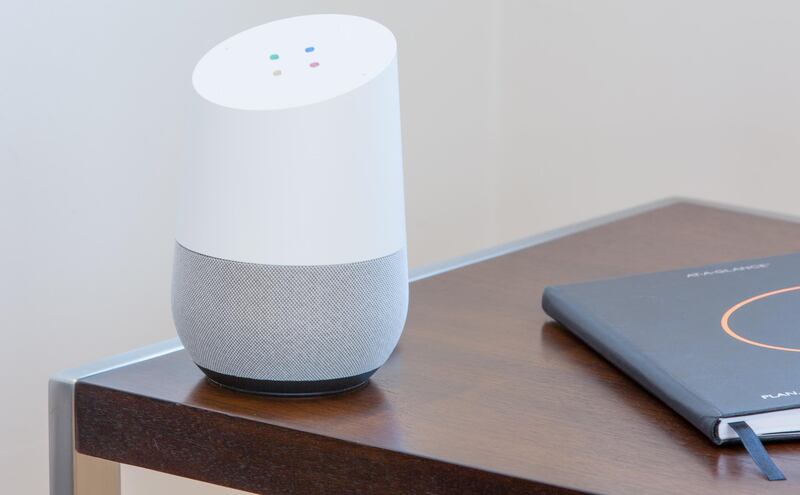Google Assistant will start providing mental health and emotional support in the Arabic language via its artificial intelligence-powered virtual assistant.
The support will be available on mobile and smart home devices run by Google, and has been created following an increased interest in emotional well-being and mental health on Google Assistant and Google Search over the past year.
It has been developed with Safe Space, a mental health organisation from the UAE. The company's licensed therapists have drafted a series of coping mechanisms on which the new virtual assistant will base its answers on.
In a statement, Google explains: "Arabic speakers can now find these responses if they tell Assistant they are feeling sad, lonely, tired, scared or angry. In several of these responses Google Assistant will encourage people to seek expert advice when asked about feelings of worry and fear."
Najeeb Jarrar, head of consumer product marketing at Google Mena, adds: "Helping people reach that piece of information, especially when they need it most, is at the heart of everything we do at Google. Our work with Safe Space will provide the millions of people who use the Arabic Google Assistant everyday expert-reviewed responses about emotional well-being that is simple and accessible.
"To everyone who came online to learn how to take care of their well-being and that of their loved ones over the past year, I hope you find this feature helpful."
The new Arabic function has been developed in line with users' search interest. According to Google, searches related to self-care were up 25 per cent in 2020 compared to 2019 in the UAE.
The search giant provided a number of statistics from the region, including:
- In Egypt, search interest for mental health reached its 10-year high in May 2020
- In Saudi Arabia, search interest in well-being grew by 137 per cent in 2020 compared to 2019
- In Lebanon, search interest in mental health grew by 44 per cent in 2020 compared to 2019
- In Iraq, search interest in well-being grew by 137 per cent in 2020 compared to 2019, and in mental health by 50 per cent
- Globally, interest in the Arabic word for therapist reached a 10-year high in August 2020
The function does not currently connect users directly to licensed therapists, but Jarrar does not rule that out.
Speaking to The National, he said: "For now, we're keen on addressing the need we see which is connecting people with expert-reviewed responses that are easy to digest and, more importantly, accessible. We also hope that this feature, and the conversation about this feature, will help encourage more conversations about emotional well-being and mental health.
"As for the future, connecting people with mental healthcare would mean we’d need to find an authoritative and reliable resource which has an exhaustive set of information about mental health clinics or organisations. We always look for local partners to bring locally relevant and reliable information a little closer to the millions of people who use Google every day."
As well as offering answers to questions related to mental health drafted by licensed therapists, the new tool will make it possible for users to integrate well-being functions into their days via Google Assistant, with the view to add more functions within the year.
For example, you could ask your Assistant to play a certain song at a certain hour and it will remember to do that, Jarrar explains. "As for meditation, we’re currently working on that feature and we hope to roll it out before the end of the year."
Rola Najem, a writer on the Google Assistant personality team, says the new feature is designed to "help and delight" Arabic speakers around the world. "In between millions of commands to set alarms, play music and hear jokes, many Arabic speakers also told their Assistant that they were experiencing feelings of sadness, fear and loneliness."
It has been developed to understand all Arabic dialects and responds in Modern Standard Arabic. Google representatives say that the company is also "working on making it available in more languages in the coming months".








